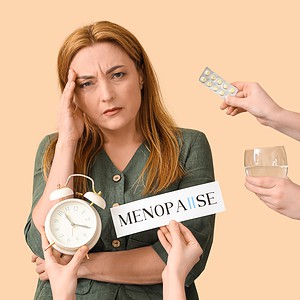Published on 25th March 2020
Social isolation may be linked to increased inflammation in the body, according to new research published in Neuroscience and Behavioral Reviews.1
Analysing 30 previous studies in this area, researchers from the University of Surrey and Brunel University London found that social isolation was associated with the presence of C-reactive protein, an inflammatory marker released into the blood after tissue injury, and also increased levels of fibrinogen, a glycoprotein involved in the formation of blood clots. The link between social isolation and inflammation was more marked in males than in females.
Less clear was the link between loneliness and inflammation; however, there was a possible association between loneliness and a pro-inflammatory molecule called interleukin-6.
Dr Kimberley Smith, lecturer in health psychology at the University of Surrey, said: “Loneliness and social isolation have been shown to increase our risk of poorer health. Many researchers propose that part of the reason for this is because they influence the body’s inflammatory response.
“The evidence we examined suggests that social isolation may be linked with inflammation, but the results for a direct link between loneliness and inflammation were less convincing. We believe these results are an important first step in helping us to better understand how loneliness and social isolation may be linked with health outcomes.”
With the emergence of the COVID-19 respiratory illness, and subsequent guidance on self-isolation and social distancing, this study is perhaps a timely reminder that measures need to be in place to support those who may be struggling with the effects of social isolation – not just to maintain their mental health, but their physical health too.
Natascha Van Zyl, MSc Health Psychology and head of ION’s Science Access Course, explains what she is doing to support older people and those in need: “I have elderly friends and I go to the shops and get them some essential groceries and then a treat like a beautiful picture (printed from my laptop and laminated). I leave this at their doors. I then phone them and we have a chat – some even have Skype and we have a cuppa and chat.” She also speaks with family on WhatsApp and suggests doing shared projects where each person is responsible for a part of something – like a square of a blanket.
For those who are self-isolating, keeping some structure to the day can also be helpful – so that there is always something to aim for. With lots of events and activities now being cancelled, many people are coming up with new ways of connecting with others – and the online platform has enabled teachers, musicians and social groups to do their thing remotely, from mediation and exercise classes, to book clubs and concerts. Whilst not everyone has access to the internet, figures show that older people are increasingly getting online, with figures showing that 83 per cent of 65- to 74-year olds used the internet in 2019.2
For more tips on supporting mental health during the coronavirus outbreak visit the Mental Health Foundation.
References:
- https://www.sciencedaily.com/releases/2020/03/200305132136.htm
- https://www.ons.gov.uk/businessindustryandtrade/itandinternetindustry/bulletins/internetusers/2019






